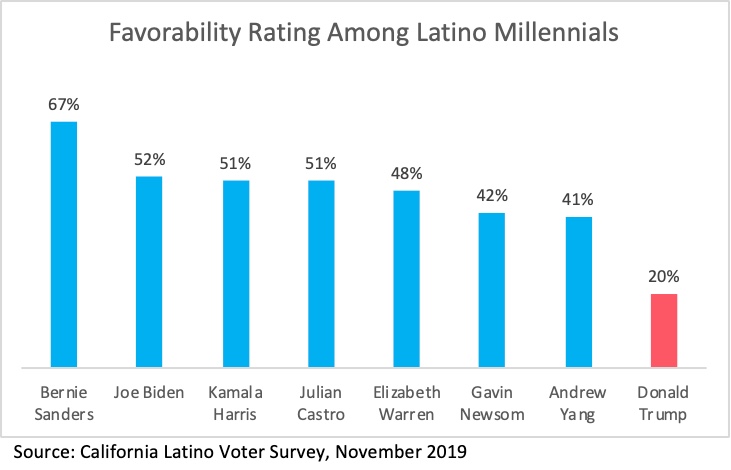Latino voter contact rates in California, New York and Texas much lower than in battleground states of Arizona, Florida, Nevada and North Carolina
With two weeks to go before Election 2016, Texan Latino voters are most likely to have been ignored, and less certain to vote
Key findings from the poll include:
- Latino voters in non-battleground states continue to be ignored at high rates. With less than two weeks to go before Election Day, the majority of Latino voters in California (62 percent), New York (64 percent) and Texas (70 percent) have not been contacted. Texan Latino voters are most likely to report being ignored, with less than one in three (30 percent) stating they had heard from a political party, campaign or organization asking them to register or vote. This is in direct contrast to battleground states like Nevada, where more than 55 percent of Latino voters note being contacted.
- Lack of contact may be resulting in lower turnout certainty for some Latino voters. The lack of outreach to Latino voters in non-competitive states could be having an impact on voter turnout certainty in Texas and New York. Latino voters in Texas were the least likely to express certainty (71 percent) that they would vote in Election 2016, with New York following close behind at only 75 percent. California is the exception, with Latino voters in the state tied (83 percent) with Arizona Latino voters as the most certain to vote in Election 2016.
- Hillary Clinton is wining the Latino vote. If the election were held today, Latino voters in all seven states would vote for Clinton over Donald Trump by a wide margin. Clinton currently enjoys the highest levels of support in California (78 percent), New York (75 percent) and Nevada (72 percent), with Trump polling highest in Florida (23 percent), North Carolina (19 percent), Arizona (18 percent) and Texas (18 percent). Latino voters in Florida were the most likely (9 percent) to report being undecided.
- Top issues for Latino voters varies state-by-state. While immigration ranked first for Latino voters in three states (California, Nevada and North Carolina), Latino voters in the remaining four states viewed other issues as more important. In Arizona and New York, improving wages and incomes was the top issue, while Florida Latino voters were most concerned about combatting terrorism and ISIS. For Texan Latino voters, lowering the cost of health care was the most important issue this election.
- Latino voters are supporting the Senate bids of U.S. Rep. Loretta Sanchez and Former Nevada Attorney General Catherine Cortez Masto. Former State Attorney General Catherine Cortez Masto has the support of Latino voters (54 percent) in her battle against U.S. Rep. Joe Heck (24 percent) for the seat being vacated by Senate Minority Leader Harry Reid. In the two-way race for the Senate seat being vacated by U.S. Sen. Barbara Boxer, Latino voters are supporting U.S. Rep. Loretta Sanchez (47 percent) over current California Attorney General Kamala Harris (30 percent). If elected, Sanchez and Cortez Masto would be the first Latinas in the U.S. Senate, and the first Latinos from their respective states to serve in Congress’ upper chamber.
A full list of Latinos running for other top posts is available here.
Vargas went on to say, “It is time that the political and funding communities finally put their money where their mouths are by making the investments necessary now to engage Latinos for 2020, 2024 and beyond if we want the nation’s second largest population group to realize its true political potential once and for all.”
Latino voters are expected to play a critical role in the race for the White House. NALEO Educational Fund projects that more than 16.2 million Latinos are registered to vote this year as of the first week of October, with at least 13.1 million Latinos expected to cast ballots in Election 2016. Expanded online registration opportunities have helped make the election process more accessible to Latinos and younger Americans, including in California where more than half a million potential voters updated or completed voter registrations in the two days preceding the state’s Oct. 24 deadline.
In the lead up to Election Day, NALEO Educational Fund will continue its efforts to ensure that Latino voters have the information necessary to make their voices heard at the ballot box. These efforts include operating our toll-free bilingual hotline 1-888-VE-Y-VOTA (1-888-839-8682) that provides Latino voters with information on every aspect of the electoral process, from registering to vote, to voter ID requirements, to finding their polling place. On Election Day, the hotline is connected to the Election Protection efforts and 1-866-OUR-VOTE, offering Latino voters nationwide a bilingual resource to report any problems they may experience at the polls.
To ensure Latino voters are able to cast ballots free from intimidation, NALEO Educational Fund has also asked the Department of Justice to deploy poll monitors and resources to targeted jurisdictions this election. More information can be found in NALEO Educational Fund’s letter to the Department of Justice here.
NALEO Educational Fund is the nation’s leading non-partisan, non-profit organization that facilitates the full participation of Latinos in the American political process, from citizenship to public service.


